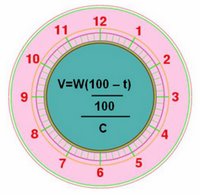I always remember when I was in Nepal, Mum used to tell me son you are not giving enough time on your study. You know this is the time you have to make your career; the time which you are killing now will never come back again. This time is really count as money and my answer used to be that Mum please, don’t give me lecture and advice every time, I know what is right and wrong. When I was in college even sometime she used to wake me up to go college, how silly I was but she never used to forget when I have to attend class and different stuffs. Really, it was also good time when I was with family (especially mom’s love), this remind me today that Time is more than money.
Let me move from those maudlin stuffs, it has gone and past now. There is also one proverb that past is to remember, future is to wish and present is your real time, utilise it very carefully. Long time ago, I had read one article in The Times newspaper “Scientists show that time really is money”. I am trying to go through it which I can remember and few of them are my own personal experiences.
Most of us know that time is money. In economic, wages or salaries have given an indication of how we are valued at work which can refers traditional way however, by looking at salaries against taxation, the cost of living, we can see how much an hour of our time is worth whether at work or home. We can calculate it by using a mathematical formula for the monetary value of every minute of a person’s working life. Ian Walker, a professor of Economics at Warwick University has given a very simple formula to calculate it is: V= (W(100 – t)/100)/C, where V is the value of an hour, W is a person’s hourly wage, t is the tax rate and C is the local cost of living.
Let me move from those maudlin stuffs, it has gone and past now. There is also one proverb that past is to remember, future is to wish and present is your real time, utilise it very carefully. Long time ago, I had read one article in The Times newspaper “Scientists show that time really is money”. I am trying to go through it which I can remember and few of them are my own personal experiences.
Most of us know that time is money. In economic, wages or salaries have given an indication of how we are valued at work which can refers traditional way however, by looking at salaries against taxation, the cost of living, we can see how much an hour of our time is worth whether at work or home. We can calculate it by using a mathematical formula for the monetary value of every minute of a person’s working life. Ian Walker, a professor of Economics at Warwick University has given a very simple formula to calculate it is: V= (W(100 – t)/100)/C, where V is the value of an hour, W is a person’s hourly wage, t is the tax rate and C is the local cost of living.

According to Professor Ian Walker, the equation will allow us to work out whether they are getting a fair rate for over time, as well as helping them to decide whether it is worth spending extra cash to save time for example by employing a cleaner or by taking taxi. If the amount one pays for a service is less than the value of the time you would take to do it yourself, it is generally worth splashing out.
This helps us to understand that as the value of our time rises, we are likely to buy more of it, which explains why people are paying to save time, like having someone to cut the lawn or clean the house. In other word, it shows a person’s working life by showing the precise cost of a lie–in, an extra hour at the office or even brushing one’s teeth. This formula also refers to think about how to value and use our time more effectively; vital in an age when many people feel as through they have less time to spend in the way they want to.
This helps us to understand that as the value of our time rises, we are likely to buy more of it, which explains why people are paying to save time, like having someone to cut the lawn or clean the house. In other word, it shows a person’s working life by showing the precise cost of a lie–in, an extra hour at the office or even brushing one’s teeth. This formula also refers to think about how to value and use our time more effectively; vital in an age when many people feel as through they have less time to spend in the way they want to.

No comments:
Post a Comment